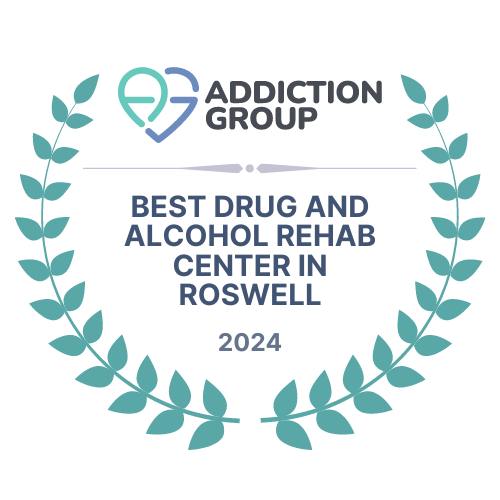Seasonal changes can significantly affect mental health and addiction recovery. As the seasons shift, individuals may experience fluctuations in mood, energy levels, and overall well-being. Understanding these impacts is crucial for developing effective strategies to maintain stability and promote long-term recovery. At Renew Health, we recognize the importance of addressing these seasonal influences and offer comprehensive support to help individuals navigate these changes.
The Connection Between Seasonal Changes and Mental Health
Seasonal changes, particularly the transition from summer to fall and winter, can profoundly impact mental health. One of the most well-known seasonal mental health conditions is Seasonal Affective Disorder (SAD), a type of depression that typically occurs during the fall and winter months when daylight hours are shorter. Symptoms of SAD can include:
- Persistent low mood
- Loss of interest in activities once enjoyed
- Changes in appetite and weight
- Sleep disturbances
- Feelings of hopelessness or worthlessness
- Difficulty concentrating
While SAD is a specific diagnosis, many people without this disorder can still experience seasonal mood changes. The reduction in sunlight exposure during the shorter days of fall and winter can disrupt circadian rhythms and lead to a decrease in serotonin levels, a neurotransmitter that affects mood.
The Impact on Addiction Recovery
For individuals in addiction recovery, the changes in seasons can pose additional challenges. Seasonal mood fluctuations can increase the risk of relapse as individuals may turn to substances to cope with feelings of depression, anxiety, or isolation. The holiday season, in particular, can be a stressful time that exacerbates these challenges due to factors such as:
- Increased social gatherings that may involve alcohol or other substances
- Financial stress related to holiday spending
- Strained family relationships
- Loneliness or grief over past losses
Understanding these potential triggers is crucial for developing effective coping strategies and maintaining recovery during seasonal transitions.
Strategies for Managing Seasonal Changes
At Renew Health, we emphasize the importance of proactive strategies to manage the impact of seasonal changes on mental health and addiction recovery. Here are some effective approaches:
- Light Therapy: For individuals affected by SAD, light therapy can be an effective treatment. This involves exposure to bright artificial light that mimics natural sunlight, which can help regulate circadian rhythms and boost serotonin levels.
- Maintain a Routine: Establishing and maintaining a consistent daily routine can provide structure and stability, which are especially important during times of change. Regular sleep patterns, healthy eating habits, and scheduled activities can help mitigate the effects of seasonal shifts.
- Stay Active: Physical activity is a powerful tool for managing mood and reducing stress. Regular exercise can increase endorphin levels, improve sleep, and provide a healthy outlet for coping with seasonal changes. Outdoor activities, even in colder weather, can be particularly beneficial for getting natural light exposure.
- Engage in Social Support: Building and maintaining a strong support network is essential for anyone in recovery. Engaging with friends, family, or support groups can provide a sense of connection and reduce feelings of isolation. Online support communities can also be valuable, especially when in-person gatherings are not possible.
- Mindfulness and Relaxation Techniques: Practices such as meditation, deep breathing exercises, and yoga can help manage stress and anxiety. These techniques promote relaxation and can be particularly useful during the holiday season or other stressful times.
- Therapy and Counseling: Regular sessions with a therapist or counselor can provide ongoing support and help individuals develop effective coping strategies. Cognitive-behavioral therapy (CBT) and other evidence-based approaches can address negative thought patterns and behaviors that may be triggered by seasonal changes.
- Medication Management: For some individuals, medication may be necessary to manage symptoms of depression, anxiety, or other mental health conditions that are exacerbated by seasonal changes. Working with a healthcare provider to adjust medications as needed can help maintain stability.
Renew Health’s Comprehensive Approach
At Renew Health, we offer a holistic and individualized approach to addiction recovery that takes seasonal changes into account. Our programs are designed to provide comprehensive support, addressing both the physical and psychological aspects of recovery.
- Personalized Treatment Plans: We develop tailored treatment plans that consider each individual’s unique needs and circumstances. This includes addressing any co-occurring mental health conditions and developing strategies to manage seasonal fluctuations.
- Integrated Care: Our multidisciplinary team of professionals includes medical doctors, therapists, and counselors who work collaboratively to provide integrated care. This ensures that all aspects of an individual’s health are addressed, promoting overall well-being.
- Ongoing Support: We offer continuous support through individual and group therapy sessions, educational workshops, and aftercare programs. This ongoing support helps individuals stay connected and engaged in their recovery journey.
- Community Resources: We connect individuals with community resources and support networks that can provide additional assistance during seasonal transitions. This includes support groups, recreational activities, and social services.
Conclusion
Seasonal changes can significantly impact mental health and addiction recovery, but with the right strategies and support, individuals can navigate these challenges successfully. At Renew Health, we are committed to providing comprehensive, compassionate care that addresses the complexities of addiction and mental health. If you or a loved one is struggling with these issues, contact us today to learn more about our programs and how we can support your journey to recovery. Together, we can build a foundation for lasting health and well-being, regardless of the season.









